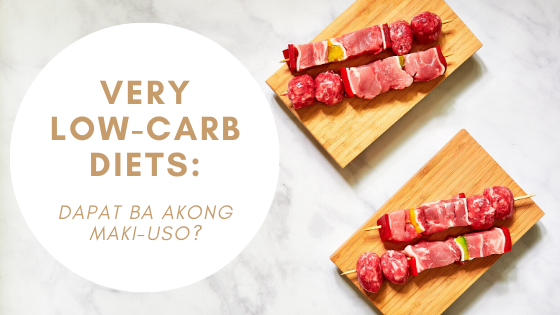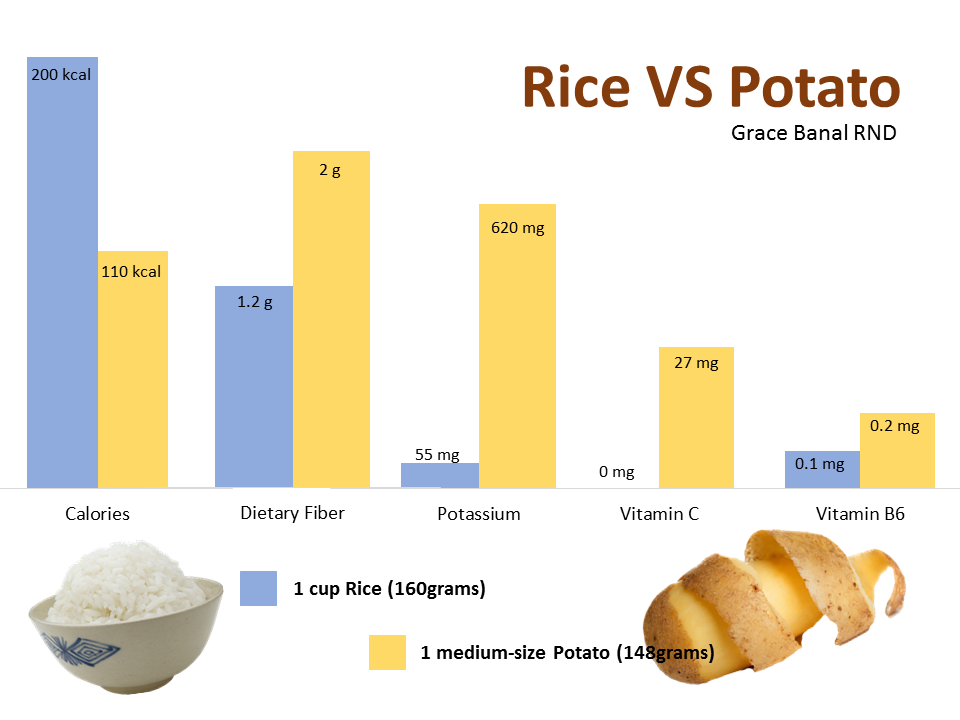You have probably heard enough OPINIONS, so let’s just get down to the FACTS, shall we? Fact #1: We NEED carbs The primary role of carbohydrates is to provide Energy to all cells in the body Carbohydrates are the primary energy source for physically active people. If you are sedentary, your carbohydrate needs may be …

You have probably heard enough OPINIONS, so let’s just get down to the FACTS, shall we?
Fact #1: We NEED carbs
The primary role of carbohydrates is to provide
- Energy to all cells in the body
Carbohydrates are the primary energy source for physically active people. If you are sedentary, your carbohydrate needs may be lower but should not be less than 55% of your total calories[1].
- Dietary fiber
Fiber is essential to human health because it helps improve blood lipid levels, regulate blood glucose and responsible for making us feel “busog” which prevent us from eating more than necessary.
Fact #2: Carbs ALONE do NOT cause obesity
According to recent systematic review and meta-analysis (a.k.a a study of many studies) about carbs and obesity[2], it cannot be concluded that a high-carbohydrate diet or increased percentage of total energy intake from carbohydrates increases the odds of obesity. There are many other variables that cause obesity – total calorie intake, physical activity level, age, gender, and the type of carbohydrates most frequently eaten. In short, carbs alone do not cause obesity but the quality of carbs eaten might play a role in the development of obesity. As of now, there is no clear evidence to support that severe restriction of dietary carbohydrates promote either long-term health or weight reduction.
Fact #3: NOT all carbs are created EQUAL
According to the latest National Nutrition Survey [3], the prevalence of obesity among Filipinos has increased from 16.6% in 1993 to 29.9% in 2013, with 31.1% of adult Filipinos being overweight or obese. Also, Filipino adults lack fiber, Vitamin C, potassium and Vitamin B6 in their diet.
According to this survey, most of the calories Pinoy adults eat come from foods with low nutrient density such as WHITE RICE and SWEETS [4].
BUT, it does NOT mean that just because rice and sweets are carbs, we should skip carbs altogether.
We need to understand that not all carbohydrates are the same. Take Rice vs Potato for example.
1 cup of white rice [160grams] contains about 200 calories, less than 1 gram of dietary fiber, 55mg potassium, 0.1mg Vit B6 and zero vitamin C [5].
1 medium-size [148grams] potato with skin has only 110 calories and contains 2grams of dietary fiber, 620mg potassium, 0.2mg Vitamin B6 and 27mg vitamin C [6].

See the difference?
With the same amount in grams, potatoes have less calories and more fiber, potassium, vitamin C and vitamin B6. So, if you reduce your overall carbohydrate intake to less than 20% of your total calories, there’s a good chance you won’t be getting enough of these nutrients that help you maintain good health. Plus, low-carb diets promote heavy consumption of meats and fats which may put you at risk of developing certain diseases.
Bottomline:
Do NOT skimp on carbs. Instead, eat nutrient-dense carbs like potatoes, brown rice, fruits, and vegetables because these contain more fiber, vitamins and minerals. Eat less processed carbohydrates such as sweets and sugar-sweetened beverages.
In short, the answer is NO.
References:
[1] Slavin, J., & Carlson, J. [2014]. Carbohydrates. American Society for Nutrition. Adv. Nutr., 760-761.
[2] Sartorius, K., Sartorius, B., Madiba, T. E., & Stefan, C. [2018]. Does high-carbohydrate intake lead to increased risk of obesity? A systematic review and meta-analysis. BMJ Open
[3] Angeles-Agdeppa, I., Sun, Y., Denney, L., Tanda, K. V., Octavio, R. D., Carriquiry, A., & Capanzana, M. V. [2019]. Food sources, energy and nutrient intakes of adults: 2013 Philippines National Nutrition Survey. Nutrition Journal.
[4] Department of Science and Technology- Food and Nutrition Research Institute [DOST-FNRI]. The 8th National Nutrition Survey [2013] results – dietary survey; Philippines; 2013.
[5] Department of Science and Technology – Food and Nutrition Research Institute [1992]. The Philippine Food Composition Tables. Metro Manila, Philippines.
[6] FDA Food Labeling Guide. Appendix C: Health Claims. www.fda.goc/Food/GuidanceComplianceRegulatoryInformation/GuidanceDocuments/FoodLabelingNutrition/FoodLabelingGuide/ucm064919.htm.
Additional readings:
Lamothe, L. M., Le, K.-A., Samra, R., Roger, O., Green, H., & Mace, K. [2017]. The scientific basis for healthful carbohydrate profile. Critical Reviews in Food Science and Nutrition, 1058-1070.
Full disclosure:
This post was sponsored by Potatoes USA – Philippines, but all opinions stated above are my own.









